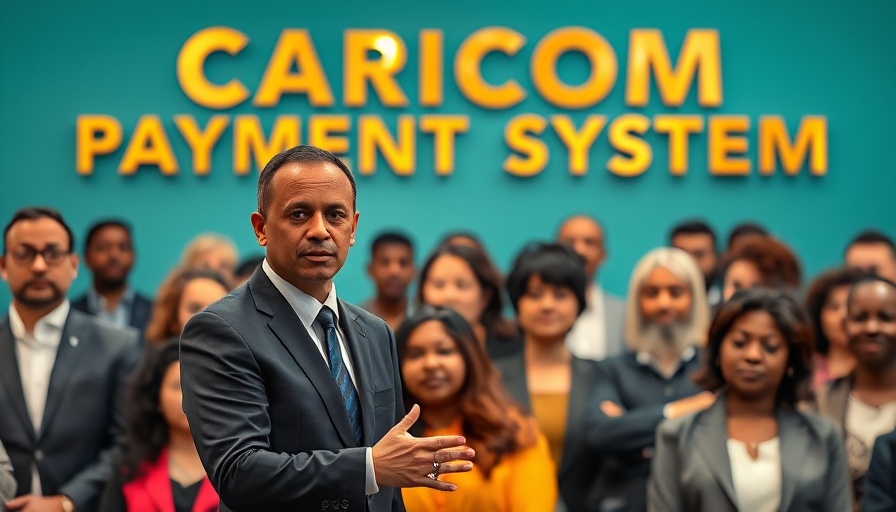
Transforming Caribbean Trade: The Impact of CAPSS
The Caribbean community is on the brink of a significant financial transformation with the upcoming launch of the CARICOM Payments and Settlement System (CAPSS). Governor Timothy N. J. Antoine of the Eastern Caribbean Central Bank (ECCB) recently highlighted how CAPSS could revolutionize trade and investment by providing faster and cheaper monetary transfers within the region and even across continents, such as Africa. By reducing the reliance on US dollars for trade—predominantly necessitating payments through correspondent banks—CAPSS represents a bold step towards enhancing regional economic autonomy.
Why Faster Payments Matter
Governor Antoine's advocacy for CAPSS stems from the need for the Caribbean to streamline financial operations. Currently, transactions predominantly occur in US dollars, which incurs costly foreign exchange fees and reliance on external banks. CAPSS is designed to function in local currencies, aiming to simplify and speed up the whole process, particularly for Micro, Small, and Medium Enterprises (MSMEs)—the backbone of Caribbean economies. These enterprises benefit greatly from lower costs and improved transaction speed, enabling them to compete more effectively not just locally but on a global stage.
Inspirations and Innovations from Africa
The conceptual foundation for CAPSS is inspired by the Pan-African Payments and Settlement System (PAPSS), launched in January 2022 by the African Export-Import Bank (Afreximbank). This initiative with Africa at its core aims to reduce the overhead of currency conversion and external banking dependencies, mirroring the aspirations of CAPSS in the Caribbean. By establishing partnerships and learning from established systems like PAPSS, the Caribbean could foster an agile and resilient economic environment.
Pilot Programs and Future Prospects
Recently, the Central Bank of Barbados and the Central Bank of The Bahamas successfully conducted a proof of concept for CAPSS, marking a promising step towards a wider implementation. Governor Antoine revealed that the next stage involves piloting the system with additional central banks, possibly including ECCB. This pilot could yield critical insights and practical experiences that will shape the future of payments across the region.
Conclusion: Economic Autonomy on the Horizon
The implementation of the CARICOM Payments and Settlement System is not merely a technological upgrade; it's a strategic move intended to bolster economic autonomy within the Caribbean. By reducing costs and enhancing the flow of trade, CAPSS could play a crucial role in unlocking new growth opportunities for businesses and communities alike. With regional cooperation and innovative financial frameworks, the future looks promising for economic collaboration within CARICOM and beyond.
 Add Row
Add Row  Add
Add 




Write A Comment